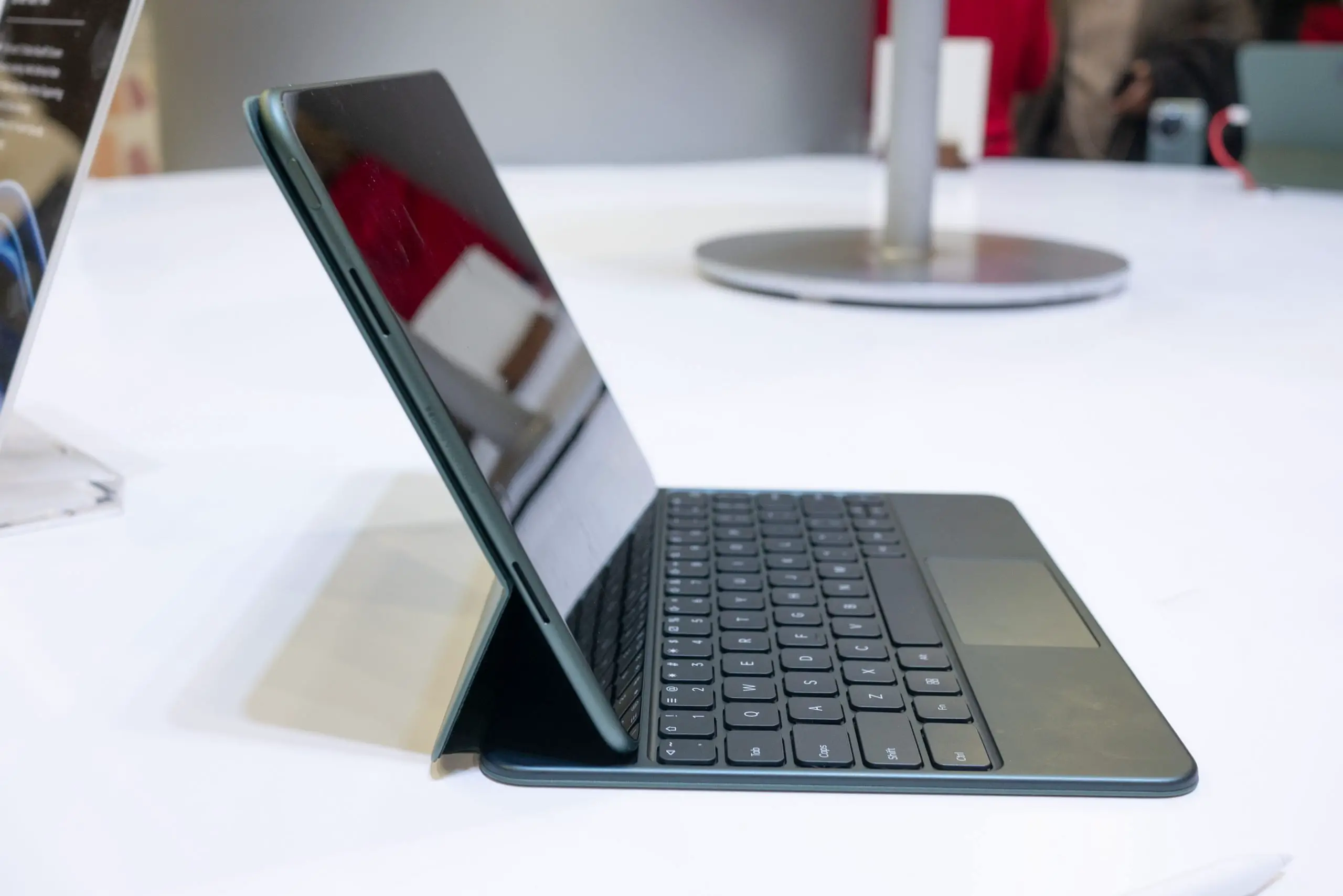If you’ve been following my posts in the past, my love of infographics wont come as a surprise. Whenever I come across a good one, I wont hesitate to post it. As loyal Phandroid readers, you’ve no doubt seen the countless posts dedicated to lawsuits involving some multi-billion dollar company suing another over “their” intellectual property or patents. It grows tiresome. As much as I feel our current patent system is very much broken, I do believe that — just like the road to hell — it was originally paved with good intentions. That being said, the boys at Frugal Dad have put together this pretty fun infographic called The Problem with Patents for those of us that like a few colorful pictures to go along with our statistics. The infographic highlights just a few of the faults with our current patent system involving software and internet technologies and the need for reform. Enjoy.
If you’ve made it this far — here’s the part where you leave your thoughts in the comments. I don’t pretend to know everything and I love it when our readers share their bits of knowledge and/or opinions. Have at it!
[FrugalDad via AndroidandMe]










I tried to wipe off the 2% yellow dot a few times before I realized it was part of the picture.
This shit is fucking BRILLIANT. Explains it all in a very simple and CLEAR way. So in layman’s terms there is a loophole wider than the late Steve Jobs’s moms ass in the US patent system. it allows people to make bullshit companies that own patents for shit they would never even begin to know how to mess with and profit unchecked for as long as they can. when big brother steps in they break it down to shitty shell companies and start all over again. meanwhile the average asshole (you and i) who have an idea never see any thing to gain from it. no wonder everything is the same rehashed BULLSHIT over and over again. It’s all been done. only thing changes is who is getting paid. and that folks is NOT you or I.
Does anyone believe the light bulb would have been delayed to market for a minuet if it wasn’t for patents? Infact, without patents, it likely would have been adopted faster… patents are never useful. If its a good idea, someone will probably do it, and the patent will just hinder its adoption.
Yeah, just look at the Internet. If someone like Steve Jobs had thought it up, we’d all be using Apple computers right now, or if you’re like me, not at all.
This…
shit is bananas, B-A-N-A-N-A-S
What would be nice, is if the only way you were allowed to be a NPE is if your company originally owned the patent for it while it was in production there. Families of original patent holders could still have benefits too, or some other small exceptions. Once a patent gets transferred, if that company is not actively producing those items or is in development of producing it, they should not be able to collect money from it.
In short, patent holders should be required to produce the product they hold patents for. If they are not using the patent, it should be open for use.
I like this line of thought but question where it takes us. If a patent is attached to the life of a patent owner then doesn’t knocking off the patent owner (or causing the transfer of a patent) free up the industry as a whole to the use of his patents? Suddenly patent protection is only as reliable as your health.
I don’t think it should matter who owns a patent.
If after some reasonable period, a patent is not being used in commerce, then it should expire. (The lack of use indicates lack of something valuable worth creating a monopoly over.)
If the patent owner is not practicing the patent then the owner should lose all rights to sue for infringement. Not practicing means you are not doing something that others are infringing upon your exclusive right to do. Otherwise the term Non Practicing Entity (NPE) equals Patent Troll.
The owner of the patent doesn’t matter. (Equal justice under the law. Why should Jane be treated differently than Joe?)
Why do families of patent holders (but I’d rather use the term “inventors”) have any special consideration whatever? If I built a house, it is property. Why should my family have any special financial interest in it other than how they would in any other property? Why should patents be different? If the inventor intends family to be benefitted, then arrange for that as you would with any other asset or property that might have ongoing value.
Speaking of patent corruption, don’t even get me started on universities. They basically take ideas and research from engineering students. Even if the student did it with his own money, but was sitting in their library, they take all of it
http://yro.slashdot.org/story/09/01/03/2327255/universities-patenting-more-student-ideas
I think patents do have their place but it seems like many patents have been accepted that should not have been. There needs to be a much stricter requirements for how and when a patent is granted. For those that have been accepted that shouldn’t have been, is it possible to revoke them?
The entire patent system should be bulldozed.
While what you propose sounds good, the problem is that the people who own the bad patents are the ones most abusing the system and making the most money from doing so. Therefore, they are the ones with the “loudest” voice (money talks) who will ensure that no effective reform ever happens.
I disagree about one point: *SOFTWARE* patents have no place.
File all this under corporate greed and government negligence.
Bookmarked this page, great stuff. Thanks.
You misspelled government corruption.
The problem with the patent system is that it makes every effort to both protect the patent holder and yet give someone else the means to compete. In some ways its detailed protection is too much for competition and yet not detailed enough for the innovator.
The patent system can’t serve both effectively but they try in the name of capitalism.
Lets fix it by removing the greedy capitalistic drive from patents. You come up with an idea. You get paid a one time payment for your idea and that invention is immediately free for industry consumption. Light bulb ideas = $50; Toast ideas = $.05; Innovation achieved!
Problem solved!
Oh! and upon approval of this new patent system all current patents immediately become free for use! All the litigation costs saved could pay off our national debt. Wow! I should be president!
So who will develop new medicine that costs tens of millions to invent?
This idea is only half good. A one time payment isn’t enough. I mean, who’s paying it to the inventor? The government? They could never afford to give out a proper one time payment (i.e. billions per invention). On the other hand, I believe that other companies using the tech should have to pay, either a one time or small yearly fees. This makes tech available but still pays the inventor. Its not perfect but better than what we’re stuck with now.
Occupy the 99% USPTO. Corporate greed, seems to be leeching off innovation from real innovations that greedy patent holders never attempted to create.
The info
The infographic mentions the minimal cost one would have to get a patent at $700. But that’s assuming there are no patent lawyers assisting you navigate the legal nightmare of the patent system. When you consider all the patent fees, lawyer fees, paying for professional drawings (which are required), and more, the actual cost of obtaining a patent is somewhere between $10,000 and $20,000(each type of patent for machines, software, etc. differs in cost) from start to holding the patent in hand. Many times the cost is the thing keeping inventors from filing for themselves, and they often turn to companies who they sell the patent to for X amount of dollars and then the company fronts the cost of the fees for the patent. Thus the inventor makes his money off selling his patent to a company and the company becomes sole owner of the patent. In some cases companies force employees to sign a waiver stating that anything they invent while working for that company while employed there instantly becomes company property.
Personally I don’t blame Apple, or whoever is suing who, for the problems with patents, I blame the Federal Gov and the USPTO for creating the system that allows Apple and others to take advantage of. The US Patent system is designed to profit corporations, not innovators.
I like paragraph two here because it hits the nail on the head. Imagine if, when the light bulb was invented, he just sat on the patent and never produced a single one and just sued everyone who somehow thought up the same thing. We’d probably be using candles still.